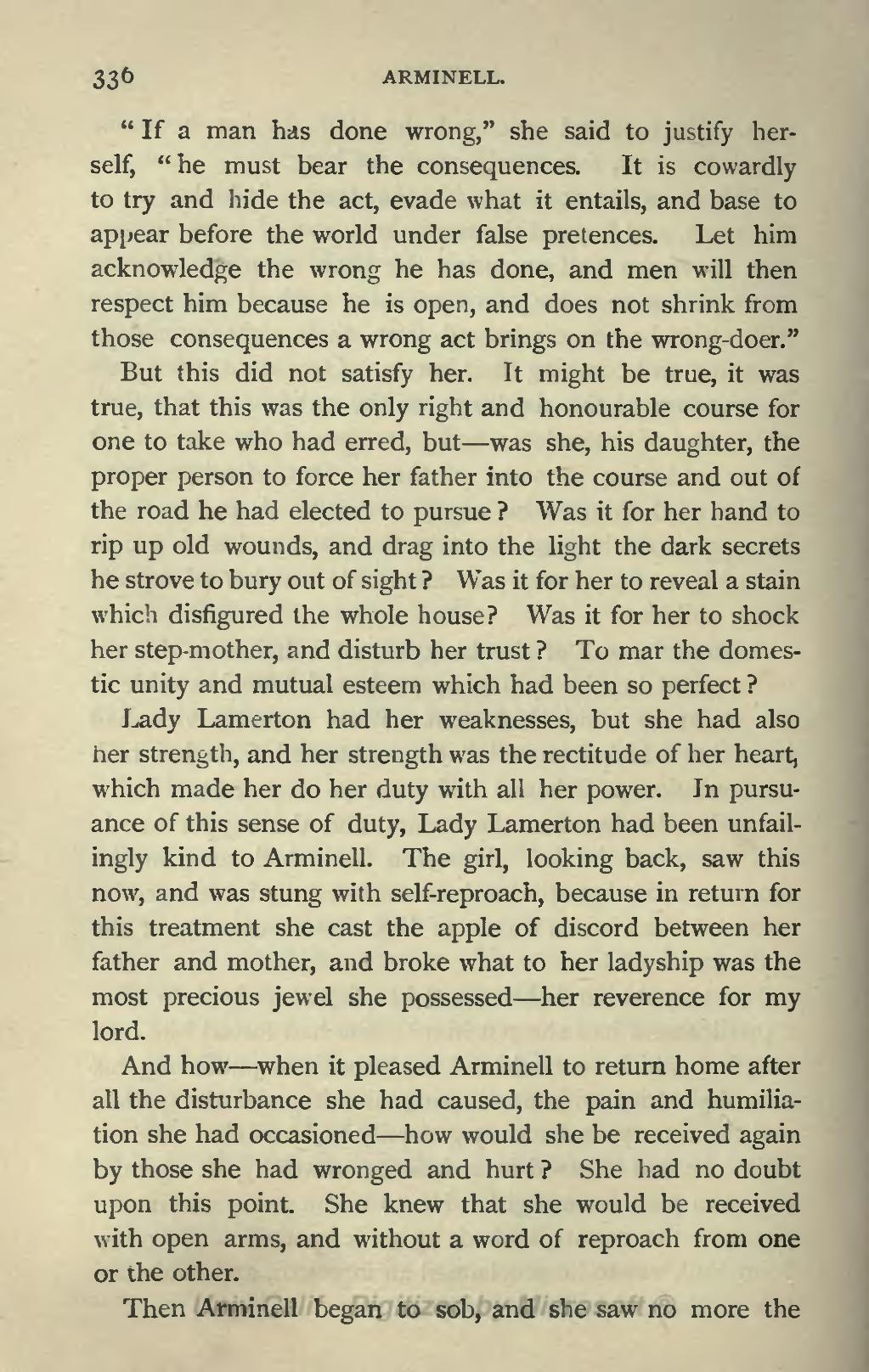"If a man has done wrong," she said to justify herself, "he must bear the consequences. It is cowardly to try and hide the act, evade what it entails, and base to appear before the world under false pretences. Let him acknowledge the wrong he has done, and men will then respect him because he is open, and does not shrink from those consequences a wrong act brings on the wrong-doer."
But this did not satisfy her. It might be true, it was true, that this was the only right and honourable course for one to take who had erred, but—was she, his daughter, the proper person to force her father into the course and out of the road he had elected to pursue? Was it for her hand to rip up old wounds, and drag into the light the dark secrets he strove to bury out of sight? Was it for her to reveal a stain which disfigured the whole house? Was it for her to shock her step-mother, and disturb her trust? To mar the domestic unity and mutual esteem which had been so perfect?
Lady Lamerton had her weaknesses, but she had also her strength, and her strength was the rectitude of her heart, which made her do her duty with all her power. In pursuance of this sense of duty, Lady Lamerton had been unfailingly kind to Arminell. The girl, looking back, saw this now, and was stung with self-reproach, because in return for this treatment she cast the apple of discord between her father and mother, and broke what to her ladyship was the most precious jewel she possessed—her reverence for my lord.
And how—when it pleased Arminell to return home after all the disturbance she had caused, the pain and humiliation she had occasioned—how would she be received again by those she had wronged and hurt? She had no doubt upon this point. She knew that she would be received with open arms, and without a word of reproach from one or the other.
Then Arminell began to sob, and she saw no more the
